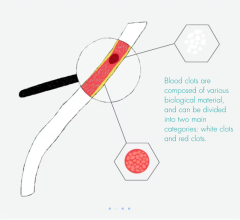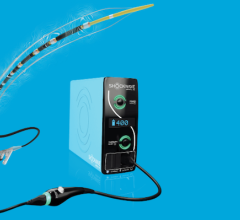August 25, 2008 – Results published in the August issue of the peer-reviewed journal Vascular Medicine, support Vermillion Inc.’s peripheral artery disease (PAD) diagnostic program, the molecular diagnostics company said.
The study was led by John Cooke, M.D., Ph.D., professor of medicine at Stanford University and involved researchers at Stanford, Mt. Sinai Medical Center (New York) and Vermillion.
An often asymptomatic disorder affecting some eight to 12 million Americans, PAD is caused by the buildup of fat and cholesterol, or plaque, in the peripheral arteries, disrupting normal blood flow. Left untreated, PAD more than doubles the risk of heart attack and stroke and increases the risk of amputation and death.
"PAD is a serious disease that often goes undiagnosed and untreated," said Dr. Cooke. "A blood test that identifies people at risk for this debilitating condition will improve diagnosis and give these people a better chance of getting the life- and limb-saving therapy they need. Our study indicates that this biomarker panel could assist physicians in identifying those individuals at highest risk of having PAD."
Vermillion has entered into an exclusive license agreement with Stanford to develop and commercialize the PAD biomarker panel.
For more information: http://www.vermillion.com/.
News | August 24, 2008


 September 12, 2025
September 12, 2025 









